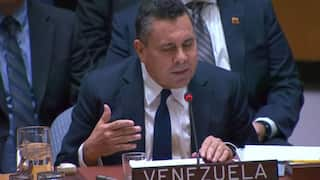Electoral Bonds Violative Of Right To Information, Citizens Have Right To Hold Govt To Account: SC Top Quotes
Chief Justice DY Chandrachud said the electoral bonds scheme violates the right to information of citizens adding that the citizens have the right to hold government to account.

The Supreme Court in a unanimous verdict on Thursday struck down the Electoral Bonds Scheme as constitutional saying it violates the right to information and the freedom of speech and expression under the Constitution.
A five-judge Constitution bench headed by Chief Justice DY Chandrachud, which had reserved the verdict in November last year, delivered two separate and unanimous verdicts on the pleas challenging the scheme.
Here are the top quotes from the judgmenet delivered by the 5-judge bench of the Supreme Court:
1. Chief Justice DY Chandrachud said the electoral bonds scheme violates the right to information of citizens adding that the citizens have the right to hold government to account.
2. The Chief Justice said the infringement to the right to information is not justified by the purpose of curbing black money.
3. The SC stated that information about funding to political parties is essential for electoral choices and held that the scheme violates the right to information under Section 19(1)(a).
4. The Supreme Court said the fundamental right to privacy also includes citizens’ right to political privacy and affiliation. It also held as invalid the amendments made in various laws, including the Representation of Peoples Act and the Income Tax laws.
5. The Supreme Court has directed the State Bank of India (SBI) not to issue any more of the electoral bonds and to submit details of all the bonds purchased since 2019 to the Election Commission, which will be later made public.
6. "Right to privacy of political affiliation does not extend to contributions made to influence public policy and applies only to contributions below the threshold," the Chief Justice said.
7. The CJ also said, "Financtial contributions to political parties are made for two parties - for support to political party or contribtuon may be way of quid pro quo."
8. Justice Sanjiv Khanna, who was part of the SC bench, said, "I agree with the judgement of Chief Justice of India. I also have applied the principles of proporitonality but with slight variation."
Related Video
Punjab News: AAP Leader Shot Dead During Wedding in Amritsar





































